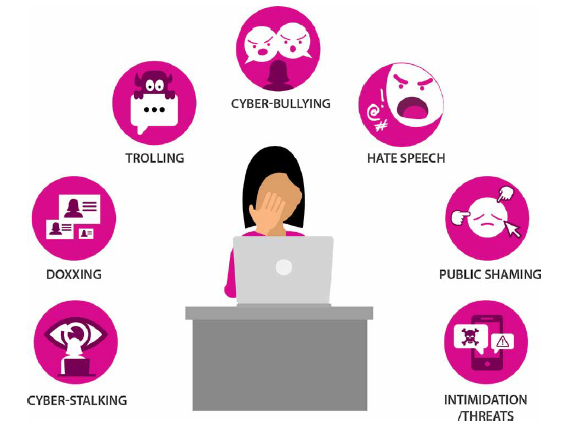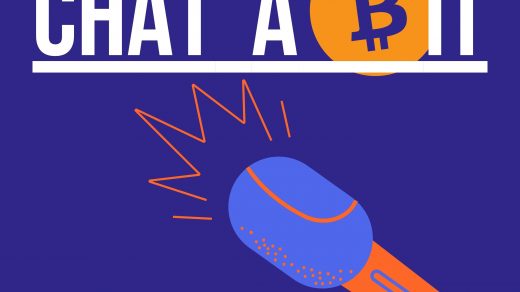Social media has brought us many great things, it has allowed us to connect with old friends and stay in contact with friends and family that lives far away from us, it has also allowed us to connect with those who have similar experiences and create a community with them. some even claim that it has had a positive effect on democracy as it has allowed us to to stay up to date about what is going on in the world as well as have access to information we might otherwise not have had. On the other hand, is there also a dark side to the internet, which many of us have already blogged about, whether it’s increased narcisism, concerns about privacy, the relationship between social media and the rise of the far right, or anything related to Facebook. However a topic I have seen little attention for so far is online harassment, thus I will dedicate this blog to discussing online harassment and what we can do to reduce it.

Online harassment has long been dismissed as an irrelevant issue that you can easily escape from by going offline, in recent years however it has fortunately been taken more serious, as it is an issue that affects a large number of people, and can have a serious impact on our democracy and freedom of speech. PEW Research Centre found that 2 in 5 Americans have experienced some form of online harassment, and over 60% of the people who have taken the survey have noticed online harassment targetted at other users on the platform. While everyone can be a victim of online harassment, as noted by these figures, it seems that those of a marginalised background have been targetted more extensively. A report by the United Nations has found that 3/4 of all women surveyed have reported being the victim of online harassment, with most of that harassment focussed specifically on their gender. The research by PEW mentioned above noted similar results, showing that when people of colour became the victim of online harassment, much of the comments were targetted at their racial background. International organisations, such as the United Nations and Amnesty International have noted the threat to be so big that they have started campaigns bringing awareness to the issue, as well as demanding solutions.
Online harassment prevention and freedom of speech are often put at odd with each other, however research by PEN America, an organisation which fights to protect the freedom of speech of authors, journalists and other writers, has noted that online harassment actually is a significant threat to freedom of speech, pointing out that when people are targetted by online harassment they tend to engage in self-censorship and to try to stay out of the spotlights to avoid drawing the attention of harassers. Additionally those targetted by online harassment reported no longer engaging with social media by deleting their account, either for a short while or permanently. This self-censorship, especially by journalists is detrimental to our freedom of speech and the health of our democracy, which is why we can’t put freedom of speech at odds with safety from online harassment.
How then do we adress online harassment without engaging in other forms of censorship? Many have called for the corporations behind the social media websites to do more in the term of enforcement and addressing the issue, however corporations often have their own motives, as well as that they try to keep the costs as low as possible, which has led to many of them adopting algorithms. These algorithms however are not capable of nuanced understanding needed to perform their tasks. One of the instances that comes to mind, in which algorithms failed in an hilarious way is probably Tumblr’s female presenting nipple controversy. However in other situations the issue is much more serious, such as Youtube demonitizing and removing videos for posting contend related to LGBTQ+ rights. In another instance Twitter’s algoritm banned a famous human rights advocate without justification. Facebook too has been mentioned when it comes to censorship in several instances, one being the censorship of the world famous picture of the Napalm Girl, which it’s algorithm had flagged for nudity. As well as deleting a post in which women of colour discussed racism they had faced. This shows we can not truly rely on private corporations to protect the rights of those most marginalised in society.
The Electronic Fronteer Foundation (EFF), as well as ACCESS NOW are some organisations that propose alternative ways to protect people from harassement online. EFF proposes to first and foremost focus on existing legislation and protective measures, and make sure they get enforced online in the same way they would be enforced offline, one example EFF gives is that defamation laws could be used to a much greater extend. Additionally they emphasise transparency from the corporations, allowing independent researchers access to information and test how the systems, as well as give transparancy to users about what they see on their timelines or dashboards, and give users increasing control about how they interact with other users and what they get to see, as well as provide information about what data is collected and opt out options. ACCESS NOW emphasises many of the same point, however they also assert that data collection should be stronger regulated by laws, as individuals do not have the necessary information to make an informed decision about what data they share. ACCESS NOW additionally advise to prioritise human rights over corporate interests when it comes to moderation rules, and that there should not be a one-size fits all approach but that each case should be judged individual within the proper contexts. Both EFF and ACCESS NOW note too that this harassment can not be judged seperately from wider society. EFF directs attention to addressing the underlying believes and ideas behind the harassment.
After having read this blog post, and understanding how online harassment affects free speech, what is according to you the best course of action to reduce online harassment?



Interesting article! As you said, the algorithms used by corporations to weed out harassment are inaccurate and often censor the wrong things. Besides, harassers and trolls would learn how to play the algorithms (by for example using dog whistles). A better system would be people who actively moderate their community, instead of algorithms that delete stuff because it somewhat looks like harassment / NSFW material.